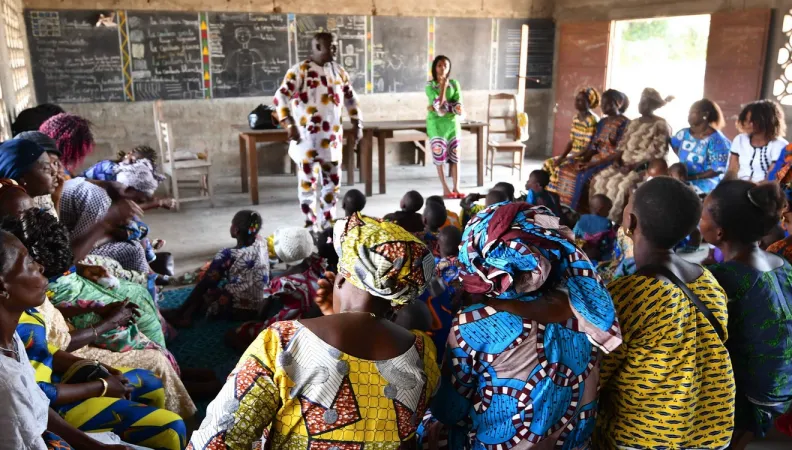Share the page
The Commons: Unleashing its Potential Across Africa
Published on

“The Commons” are shared resources managed independently by a community. To what extent do they contribute to objectives of general interest? How can public bodies safeguard these resources? The co-authors of the book “The Commons: Drivers of Change and Opportunities for Africa”, along with researchers, political scientists and field operators, discussed these questions earlier this month.
From the health sector to urban housing and digital commons, citizens’ initiatives that invoke “the Commons” are springing up across the African continent. “[They] emerge above and beyond markets and governments, through a collective definition of their own mode of governance,” says Carl Bernadac, AFD’s Deputy Director for Innovation, Strategy and Research.
An original form of contribution to the general interest
Commons “have three features,” says Benjamin Coriat, economist and co-author of the book, The Commons: Drivers of Change and Opportunities for Africa, which is co-edited by AFD and the World Bank. There is shared access to a resource; a group of people have rights to that resource, whether it concerns use, collection and/or distribution, as well as obligations related to this resource.
There must also be a governance structure that verifies the observance of these rights and obligations, to ensure the preservation of the resource.
It is very much in the interest of governments to focus on commons, “because they provide original, specific and additional societal and environmental value, at levels that are generally inaccessible for governments,” says Benjamin Coriat.
Further reading: The Commons. A New Framework for Development Policies in Africa?
Commons often develop at a decentralized level, in sectors and areas where both the government apparatus and markets are either weak or inexistent. For instance, BabyLab has been set up in Abobo, “One of the poorest municipalities in Côte d’Ivoire,” says Guiako Obin, founder of a Fab-Lab, an example of digital commons.
Think public action differently
“The present situation in Africa demonstrates the pressing need to think public action differently,” says Carl Bernadac. This can be achieved through public actors recognizing or securing commons, moving beyond the indifference that often prevails, or the opposition sometimes seen.
Guiako Obin also mentions the desire to “feel that as stakeholders, we are taken into consideration when public policies are formulated.”
The book, “Commons: Drivers of Change and Opportunities for Africa” identifies several commons with an environmental, social or economic role recognized by governments. Both central and local public actors can act as “facilitators”, by creating a framework conducive to the development of commons (through appropriate regulations and the provision of facilities, for example).
Governments can also go the extra mile by contributing to commons. But they must not distort them and “offload their responsibilities with regard to them,” says Stéphanie Leyronas, an AFD researcher and co-author of the book.
Drive a “commons-based” approach
“These are particularly important issues for donors, who are more accustomed to their role of financing conventional development projects,” says Sophie Salomon, Deputy Director of AFD’s Research Department. Pilot schemes are already underway: “We’ve tested things with agroforestry commons in the Senegal River valley, for example.”
The research conducted under the AFD research program on the commons has now laid the foundations for a “commons-based” approach, by creating both tools and policies. The challenge lies in “ensuring that technical projects have meaning and impact for stakeholders, which is essential for sustainable development,” says Sophie Salomon.
Watch the conference-debate of February 6: “What Public Policies for the Commons?”
